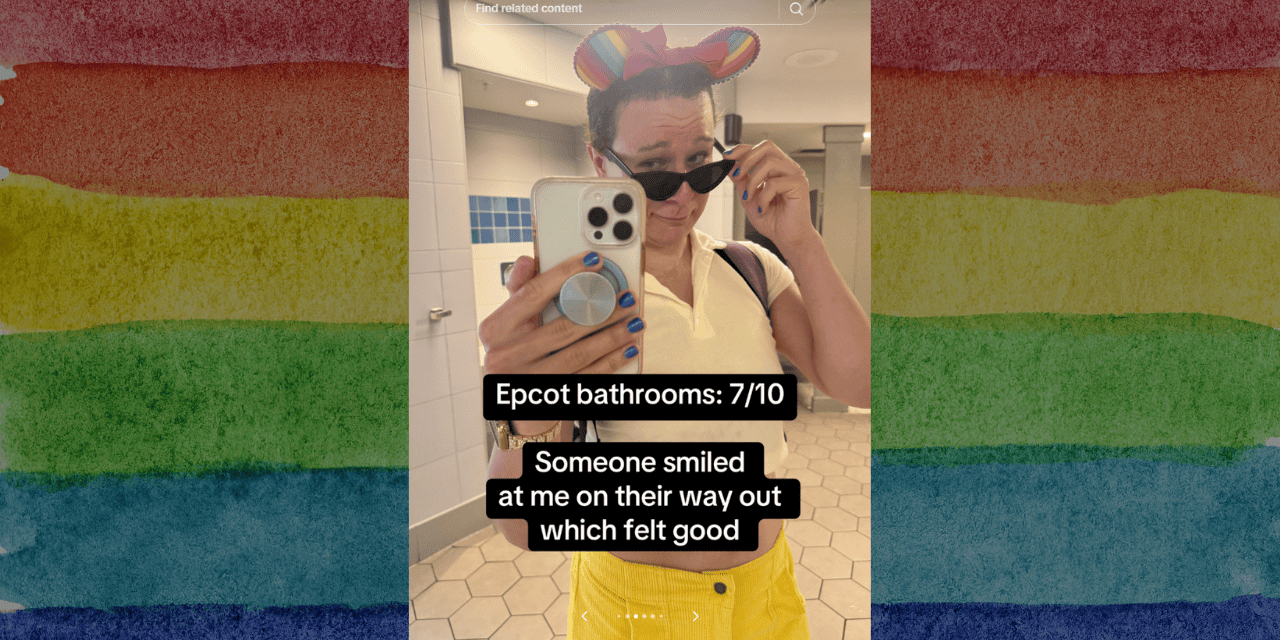New Study: Even Failed Efforts to Leave Homosexuality Are Not Harmful

A new study has demonstrated that even failed “sexual orientation change efforts” (SOCE) are not associated with causing behavioral harms.
The study, from Rev. D. Paul Sullins, Ph.D., a research associate professor of sociology with the Catholic University of America, found, “The SOCE group was statistically indistinguishable from the non-SOCE group on any measure of harm.”
LGBT activists and their allies have trumpeted for years the belief that homosexuality is a normal variation of human sexuality and that attempting to follow a biblical sexual ethic – and leave homosexuality – is “damaging” and “does not work.”
This study directly contradicts the idea that efforts to leave homosexuality are harmful.
We reached out to Father Sullins, who told us about his research, “Following Non-efficacious Sexual Orientation Change Efforts: A Retrospective Study of United States Sexual Minority Adults, 2016–2018.”
In an email exchange, he told The Daily Citizen,
The original research I recently published compared a population sample of LGB persons who had undergone SOCE with those who hadn’t, (available at Frontiers in Psychology) to see if the former were currently more likely to manifest greater psychological distress.
None of the study participants had been successful in discontinuing same-sex attraction or behavior. Strikingly, I found that the two groups were statistically identical for seven measures of current harmful behavior, including self-inflicted harm (cutting), alcohol dependence, substance abuse, thoughts of suicide, planning suicide, declaring an intent to commit suicide, or attempting suicide.
Fr. Sullins went on to explain,
This result was notable because the SOCE participants were subject to worse childhood family conditions, higher minority stress and discrimination, and lower socioeconomic status, all of which are correlated with a higher risk of harmful behavior, yet following SOCE, their level of harm was no higher than their peers who had not experienced these conditions.
In the peer-reviewed analysis, Sullins used data collected by Gallup, Inc., for the Williams Institute on Sexual Orientation and Gender Identity Law and Public Policy.
The research and activist group is based at the UCLA School of Law. Data from the Gallup survey had been used by activists to purportedly show that LGB-identified individuals “who underwent conversion therapy were nearly twice as likely to think about and attempt suicide compared to their peers.”
In this new look at the data, Fr. Sullins is basically saying, à la Inigo Montoya, “I do not think that Gallup survey means what you think it means.”
He explained why his analysis came to an entirely different conclusion than that reached by LGBT activists,
Why did former research come to the opposite conclusion? My literature review discovered that almost all prior “research” was anecdotal or speculative, based on small non-representative samples. If you look for it, you can always find some persons who did not benefit from a course of therapy.
Only four previous studies attempted to use a random sample [such as the Gallup/Williams survey], and none of these studies separated suicidal behavior before SOCE, which was much higher, with suicidal behavior following SOCE, which was much lower.
After accounting for these differences, the risk of suicide attempts was five times lower following SOCE than for those never undergoing SOCE – the opposite of what LGBT advocates allege – an outcome I explore further in a forthcoming study (available in preprint, here).
We asked Fr. Sullins, “With so much evidence that some people leave homosexuality and transgenderism, why such intransigence from the American Psychological Association – and other professional groups – on this issue?”
He told us,
The debate over “conversion therapy” goes directly to the question of whether homosexuality is a fixed, innate condition. If someone can change their sexual orientation, and do so intentionally with therapeutic help, then it cannot be a fixed, innate condition for that person, and perhaps persons are more free to reject being homosexual than is currently believed in mainstream culture.
To elite academic culture, the belief that homosexuality is normal and healthy is like an article of faith, and from that perspective the Christian faith is treated like a heresy.
Explaining how “conversion therapy” bans endanger free speech and religious freedom, Fr. Sullins said,
Most of the proposed therapy bans supported by the APA and other professional associations are so widely drawn that they would even prohibit pastors from counseling their own church members that homosexuality is anything other than healthy and morally acceptable.
The ban recently enacted in Australia explicitly prohibits non-homosexuality-affirming prayer, and a Christian member of parliament was recently indicted in Finland for tweeting the image of a page in the Bible that speaks of homosexual behavior as sin.
Father Sullins hopes that research like this will cause people to oppose laws prohibiting counselors from helping those with unwanted same-sex attractions,
Those who confess that the Word of creation became flesh in Christ believe that reason and faith converge on the same set of truths about God, humanity and the world.
I hope that the consideration of these empirical truths, which mirror those declared in the Bible, will help to open minds to understand and hearts to pull back from the unwarranted censorship, with potentially brutal consequences, of opinions and religious convictions with which they disagree.
Related resources and articles:
Read Father Sullins’ work:
Efficacy and risk of sexual orientation change efforts: a retrospective analysis of 125 exposed men
Sexual Orientation Change Efforts (SOCE) Reduce Suicide: Correcting a False Research Narrative
Focus on the Family:
Counseling for Sexual Identity Concerns: A Measured, Careful, and Compassionate Approach.
The Daily Citizen:
Is Therapy to Leave Homosexuality Damaging? New Review Says, ‘No Proof of Harm’
New Study Shows Therapy to Leave Homosexuality Can Be Effective and Helpful
Therapy Bans Threaten Religious Freedom, Free Speech and Parental Rights
Photo from Shutterstock.
ABOUT THE AUTHOR
Jeff Johnston is a culture and policy analyst for Focus on the Family and a staff writer for the Daily Citizen. He researches, writes and teaches about topics of concern to families such as parental rights, religious freedom, LGBT issues, education and free speech. Johnston has been interviewed by CBS Sunday Morning, The New York Times, Associated Press News, The Christian Post, Rolling Stone and Vice, and is a frequent guest on radio and television outlets. He graduated Phi Beta Kappa from San Diego State University with a Bachelors in English and a Teaching Credential. He and his wife have been married 30 years and have three grown sons.




